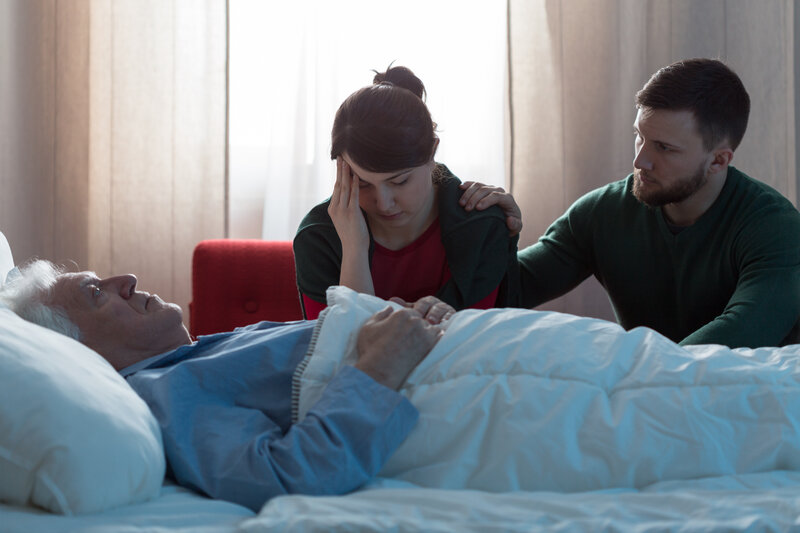Honoring A Loved One’s Resistance To Food When Dying

Honoring a loved one’s resistance to food when they’re dying is one of the hardest parts of the process. Food and nourishment are associated with love, connection, and memory-making. Unfortunately, it can also feel like participating in their resistance to food means accepting the unacceptable or somehow contributing to their death.
Neither of these is true.Lack Of Appetite & Resistance To Food Is Part Of The Dying Process
Historically, humans understood that death from disease or aging included an inevitable retreat from “normal life.” This retreat may start with a loss of vision or hearing, which makes outside events less interesting. It spreads to a shrinking appetite and eventually leads to a complete (if not near complete) disinterest in food altogether. Towards the end, the retreat continues inward until the life we are officially disconnected from the physical form we’ve taken thus far. We appreciate the words of hospice nurse and educator Barbara Karnes, who says: It isn’t that the person doesn’t want to eat. They usually try but state they just “can’t” eat. This is because eating or not eating has nothing to do with the personality choosing to eat or not. It has to do with the body releasing its hold on this physical plane. In other words, lack of appetite and disinterest in food (or the outside world) is a normal part of the dying process, and the letting go of the body that process requires. “Letting go” almost always involves:- Diminishing appetite (this may begin years or months before a person physically dies).
- Less desire in leaving the home or in “outward” activities.
- Spending more time in quiet reflection or processing memories and events.
- Sleeping more.
- Spending days or hours in an unconscious, non-responsive state.